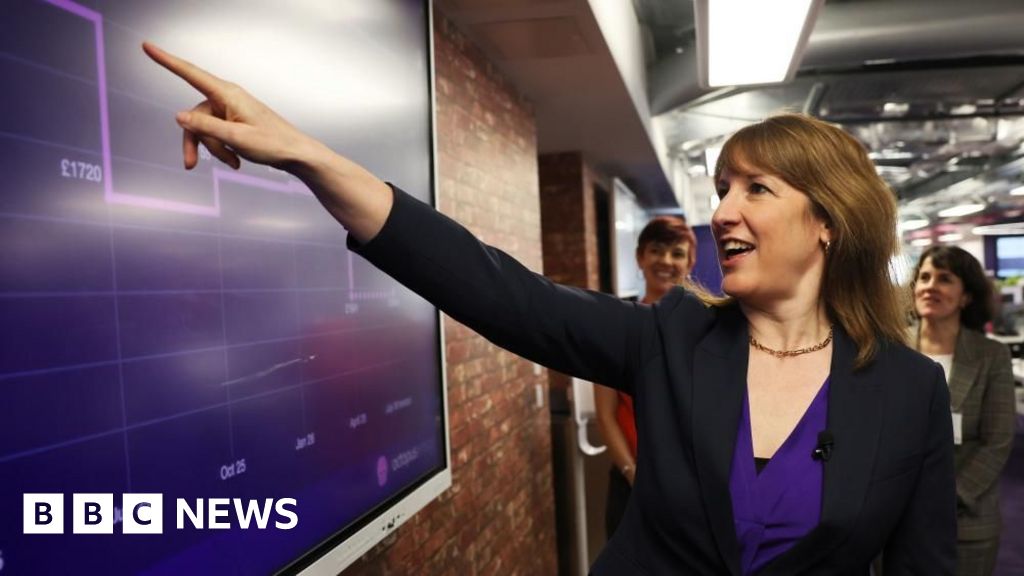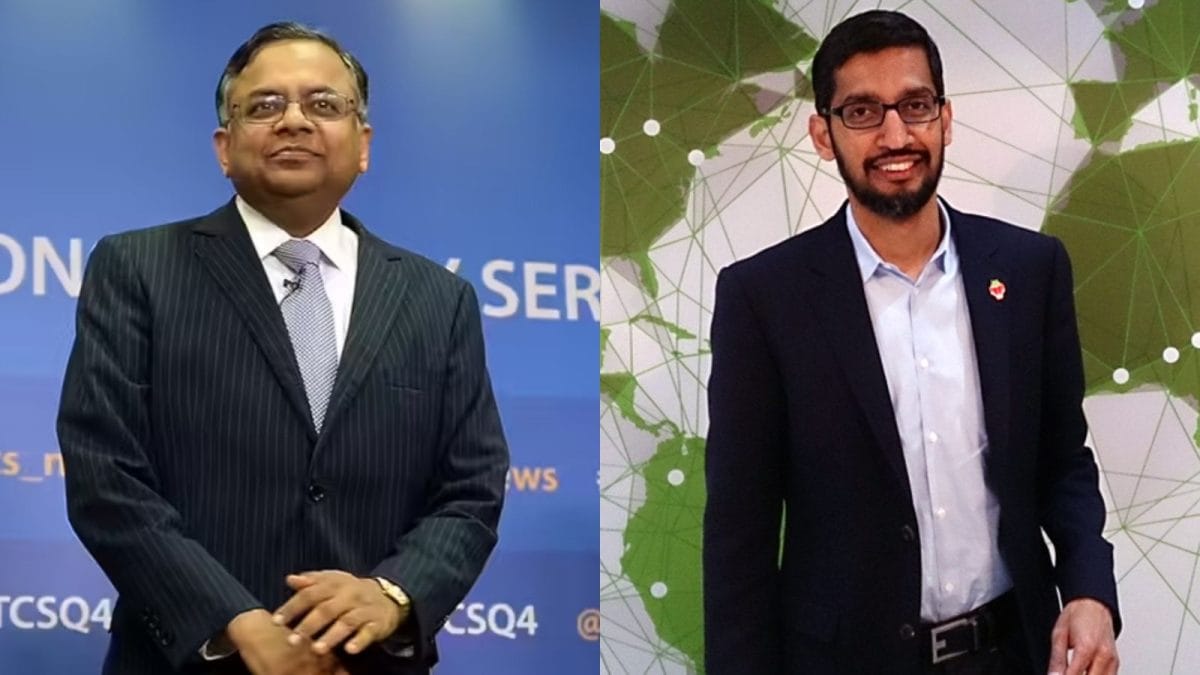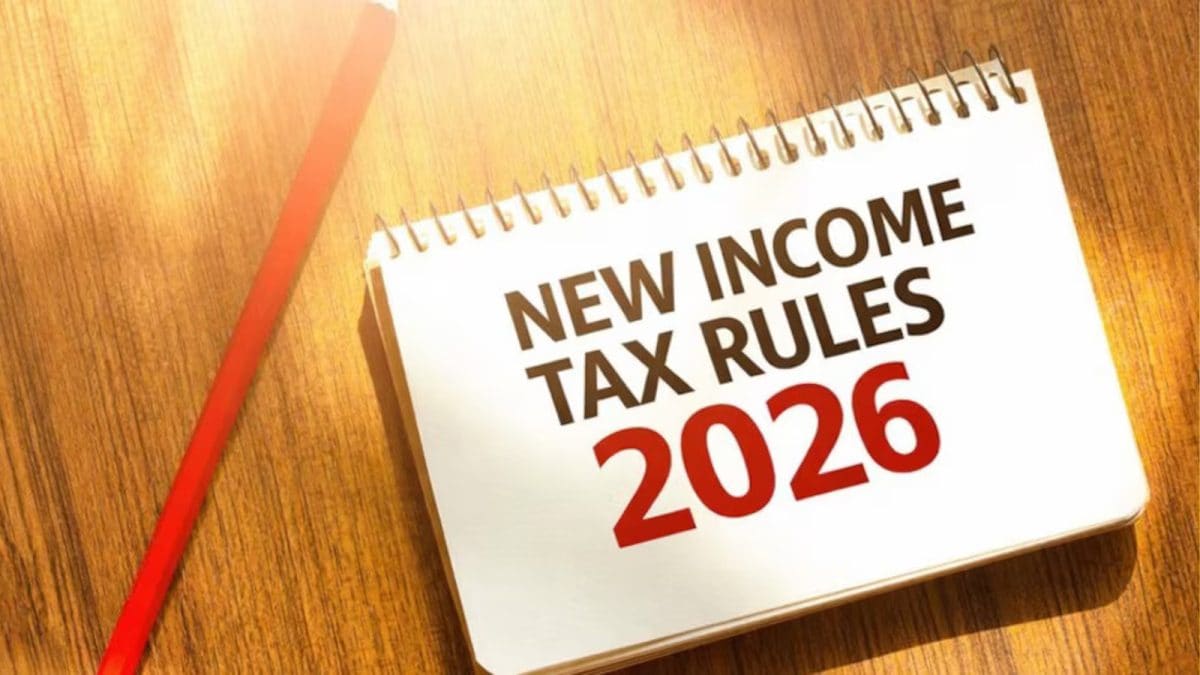Business
Flight disruptions from shutdown pile up as Trump threatens air traffic controllers

Flight timings and cancellations are displayed on the departures board, a month into the ongoing U.S. government shutdown, at Ronald Reagan Washington National Airport in Arlington, Virginia, U.S., November 9, 2025.
Annabelle Gordon | Reuters
Flight cancellations were again piling up on Monday as air traffic controller shortages, worsened by the longest-ever U.S. government shutdown, snarled air travel coast to coast while President Donald Trump threatened to dock air traffic controllers’ pay if they are absent from work.
On Monday, 2,079 of the 25,735 scheduled U.S. flights were canceled, just over 8% of the day’s schedule, according to aviation-data firm Cirium, which noted that on-time departures were better than average, though bad weather impacted airline operations as well.
Last week, the Trump administration ordered airlines to cut domestic flights at 40 major U.S. airports starting with 4% reductions last Friday and ramping up to 10% by this coming Friday, Nov. 14, citing strains on air traffic controllers.
“All Air Traffic Controllers must get back to work, NOW!!!,” Trump said in a post on Truth Social, adding that he would recommend $10,000 bonuses for any air traffic controllers who didn’t take any time off during the shutdown. He said those who don’t immediately return to work would be “docked.”
The National Air Traffic Controllers Association in response said that air traffic controllers are “unsung heroes, who report for duty to safely guide this country’s passengers and cargo to their destinations.” The organization said they “deserve our praise” and “have certainly earned it.”
Disruptions over the weekend included 18,576 delayed flights while 4,519 were canceled, according to FlightAware. Cancellations spilled over from regional, short-haul jets — which the largest U.S. airlines rely on for around half of domestic flights — to mainline flying.
United Airlines and Delta Air Lines were each offering flight attendants extra pay to pick up flights, according to company messages seen by CNBC. United was also offering pilots extra pay for more flights than it usually does, an airline spokesman said. Such extra pay is common during storms or other disruptions.
American Airlines Chief Operating Officer David Seymour said Monday that 250,000 of its customers were affected by disruptions over the weekend, with 1,400 cancellations attributed to air traffic control.
“This is simply unacceptable, and everyone deserves better. Our air traffic controllers deserve to be paid and our airline needs to be able to operate at a level of predictability and dependability that no major airline was able to provide the flying public this weekend,” he said in a note to staff that was seen by CNBC.
Airlines were waiving change fees and in some cases, fare differences, depending on when customers could rebook travel. Customers could also request a full refund for the portion of their tickets they were unable to fly.
A sign of how severe air travel disruptions have become during the government shutdown: Sunday’s 2,631 U.S. flight cancellations, 10% of the day’s schedule, marked the fourth-worst day since January 2024, Cirium said.
In comparison, on Friday morning, as Trump administration-mandated flight cuts took effect, cancellations ranked 72nd since the start of last year.
The disruptions that upended the travel plans for hundreds of thousands of travelers forced them to look for alternative transportation. Car rental company Hertz last week reported an increase in one-way demand. There’s also been increased demand for private jet flights in recent days, according to the CEO of charter and fractional ownership company Flexjet.
Though the Trump administration order didn’t initially require private aviation to cut in the same way as commercial airlines, the Federal Aviation Administration on Monday began limiting those flights at a dozen U.S. airports. However, many private jet operators don’t use the busiest commercial airports, said the National Business Aviation Association.
Increased strain
Air traffic controllers missed their second paycheck of the shutdown on Monday, though they are still required to work. Some of them have taken second jobs to make ends meet, government and union officials have said.
A commercial airliner takes off past the air traffic control tower at San Diego International Airport during the first day of a partial U.S. government shutdown in San Diego, California, U.S., Oct. 1, 2025.
Mike Blake | Reuters
“Now, they must focus on child care instead of traffic flows. Food for their families instead of runway separation,” Nick Daniels, president of the National Air Traffic Controllers Association, said at a news conference on Monday. “The added stress leads to fatigue, the fatigue has led to the erosion of safety and the increased risk every day that this shutdown drags on.”
The Senate made progress overnight on a deal that could end the shutdown, but it has not yet approved a funding bill.
Daniels said it isn’t yet clear how long it would take for controllers to receive back pay for their work. In the shutdown that ended in 2019, it took about 2½ months before the workers were made whole, he said.
Trump’s comments about air traffic controllers on Monday drew criticism from Rep. Rick Larsen, D-Wash., ranking member of the House Committee on Transportation and Infrastructure, who called the statement “nuts!” and said it ran counter to Transportation Secretary Sean Duffy’s call for aviation workers’ support.
“The women and men working long hours in air traffic control towers to keep the aviation system running deserve our thanks and appreciation, not unhinged attacks on their patriotism,” Larsen said.
An end to the shutdown also doesn’t mean that the flight restrictions will be lifted immediately. The FAA last week said it will determine whether to increase or decrease the flight restrictions based on safety data.
While airlines had little time to make the last-minute schedule changes when the order came out last week, to ramp up flying again they will need time to adjust schedules, sell seats and position planes and crews.
“Airlines’ reduced flight schedules cannot immediately bounce back to full capacity right after the government reopens. It will take time, and there will be residual effects for days,” Airlines for America, the lobbyist for the country’s biggest airlines, said in a statement late Monday. “With the Thanksgiving travel period beginning next week and the busy shipping season around the corner, the time to act is now to help mitigate any further impacts to Americans.”
Business
Faisal Islam: Is Reeves right in saying we’re turning a corner?

The Chancellor is trying to use this moment as a launching pad for a wider attempt to gee up consumer and business confidence.
Source link
Business
Oil market price battle: Russia and Iran offer deeper discounts to China as crude piles up at sea – The Times of India

Russian and Iranian oil producers are reportedly offering deeper discounts to compete for the same limited pool of Chinese buyers after India pulled back from purchases. Analysts say India’s imports from Russia could fall by 40 per cent from January levels, to around 600,000 barrels a day, according to a scenario from Rystad Energy, as reported by Bloomberg.Much of the displaced crude is heading east, sparking a price war with Iranian suppliers, long favoured by China’s independent refiners, known as teapots. Russian Urals crude is reportedly selling at about $12 a barrel below ICE Brent, up from a $10 discount last month. Iranian Light crude is going for as much as $11 below the global benchmark, widening from $8–$9 in December, according to traders.
“The Chinese private refiners cannot take in much more as their capacity is likely maxed out,” said Jianan Sun, an analyst at Energy Aspects, noting that sanctioned barrels are building up in both onshore and offshore storage.China’s teapots historically act as a pressure valve, absorbing barrels shunned by others, but their capacity is limited; they account for roughly a quarter of the country’s refining capacity and are also subject to government import quotas. Major state-owned refiners, meanwhile, have traditionally avoided Iranian crude and have recently largely stayed away from Russian barrels as well.With China unable to fully absorb the displaced supply, unsold oil is piling up in Asian waters, leaving Russia and Iran scrambling. The Kremlin has already cut output, depriving it of funds for its war in Ukraine, while Iran is trying to ship as much oil as possible amid fears of a potential US strike.Data shows Russian oil deliveries to Chinese ports rose to 2.09 million barrels a day in the first 18 days of February, a roughly 20 per cent increase from January and nearly 50 per cent higher than December. By contrast, Iranian exports to China have fallen about 12 per cent from a year earlier, to roughly 1.2 million barrels a day, according to Kpler. The firm estimates nearly 48 million barrels of Iranian crude are now at sea, up from about 33 million in early February. Russian cargoes sitting in Asian waters total around 9.5 million barrels.A potential US strike on Iran could disrupt exports if oil facilities are targeted or shipments through the Strait of Hormuz are blocked. Russian barrels carry a “relatively lower level of risk” for Chinese buyers compared with Iranian crude, said Lin Ye, vice president of oil markets at consultancy Rystad Energy, citing optimism over a potential ceasefire in Ukraine.
Business
HSBC reclaims top spot as FTSE 100 hits new high

The FTSE 100 reached fresh heights on Wednesday, with well-received results from HSBC, and gains in mining stocks, paving the way for another record-breaking day.
“The strong showing from the UK stock market so far in 2026, on top of a major success in 2025, bodes well for changing its reputation from unloved to admired,” said Russ Mould, investment director at AJ Bell.
The FTSE 100 index ended up 125.82 points, 1.2%, at 10,806.41, a record close and its best level for the day.
The FTSE 250 ended up 135.85 points, 0.6%, at 23,636.89, and the AIM All-Share closed up 1.26 points, 0.2%, at 816.79.
London’s brighter mood was reflected elsewhere in Europe.
The CAC 40 in Paris closed up 0.5% on Wednesday, while the DAX 40 in Frankfurt ended 0.8% higher.
Stocks in New York were also higher. The Dow Jones Industrial Average was up 0.4%, the S&P 500 index was 0.6% higher, and the Nasdaq Composite advanced 1.0%.
Across the pond all eyes point towards earnings from Nvidia, due for release after the New York market close.
David Morrison, senior market analyst at Trade Nation, said: “Tonight’s results will focus initially on revenues and earnings. In prior quarters, Nvidia has often surprised investors with bullish forward guidance, and if there’s good news here, then that should underpin the share price.
“But data centre revenue, chip demand and hyperscale cloud spending are all important elements, while competition (another recent issue) and margins will also be poured over by analysts.”
The pound was little changed at 1.3537 dollars on Wednesday afternoon, from 1.3536 dollars at the equities close on Tuesday.
The euro stood higher at 1.1804 dollars, from 1.1787 dollars. Against the yen, the dollar was trading higher at 156.39 yen, compared with 155.71 yen.
The yield on the US 10-year Treasury widened to 4.05% on Wednesday from 4.04% on Tuesday. The yield on the US 30-year Treasury was flat at 4.69%.
In London, shares in HSBC hit an all-time high after better-than-expected fourth-quarter results.
The 7.9% gain took the Asia-focused lender’s market value to £239.29 billion, overtaking AstraZeneca as the most valuable listed UK company.
Cambridge-based drugs firm AstraZeneca has a market value of a touch below £236 billion after falling 0.7% on Wednesday, with oil major Shell, up 1.3%, a distant third at £169.72 billion.
For the fourth quarter of 2025, HSBC said adjusted pre-tax profit rose to 8.59 billion dollars from 7.32 billion dollars a year ago, ahead of 7.85 billion dollars consensus.
JPMorgan said the profit beat was driven by strong banking net interest income, and impairments coming in 12% lower than forecast.
Looking ahead, chief executive Georges Elhedery said HSBC is “raising our ambition and targeting a 17% [return on tangible equity] or better, excluding notable items, in each year from 2026 to 2028”.
“We are also targeting year-on-year revenue growth over the same period on the same basis, rising to 5% in 2028,” he added.
JPM said the new targets are slightly above consensus expectations for annual revenue growth of 4.2% in 2028.
Citi analyst Andrew Coombs said it was “a good print”, with “potential for high-single digit consensus EPS upgrades”.
Mining stocks were also in demand as metals prices rose.
Gold firmed to 5,204.64 dollars an ounce on Wednesday from 5,142.02 dollars on Tuesday. Silver rose 4.1% and copper gained 0.9%.
Miners Fresnillo, Antofagasta and Anglo American rose 7.3%, 5.7% and 4.4% respectively.
Also in the green was St James’s Place, after it said it will increase shareholder returns after reporting better-than-expected 2025 results.
The London-based asset manager rose 6.6%, as it reported a post-tax underlying cash result of £462.3 million in 2025, up 3.4% from £447.2 million the year prior, and ahead of £445.5 million company-compiled consensus. Pre-tax profit increased 28% to £1.34 billion from £1.05 billion.
Post-tax underlying cash basic earnings per share of 87.0 pence, increased 6.1% from 82.0p, ahead of 84.2p consensus.
In addition, the firm intends to increase total annual shareholder distributions to 70% (from 50%) of the underlying cash result through a combination of dividends and share buy-backs.
But Diageo shareholders had a day to forget, as shares plunged 13% after it cut full-year sales guidance and slashed its dividend.
London-based Diageo operates in more than 180 countries with a portfolio of more than 200 brands, including top sellers such as Johnnie Walker whisky, Smirnoff vodka, Tanqueray gin and Guinness stout.
It said net sales fell 4.0% year-on-year to 10.46 billion dollars in the six months to December 31, from 10.90 billion dollars a year ago, below VA consensus of 10.57 billion dollars.
Sales declined 2.8% on an organic basis, compared to VA consensus for a 2.0% drop, with organic volumes down 0.9% and a negative price/mix of 1.9%.
“Trading conditions remained challenging in the first half of the year. We believe this was largely due to further macroeconomic and geopolitical uncertainty, and weak consumer confidence in key markets,” the company said in a statement.
For the financial year, Diageo now expects a full-year organic net sales decline of 2% to 3%, “given further weakness in the US”. It had previously predicted an outcome between “flat to slightly down”.
In addition, the firm halved its first-half payout to 20 cents per share from 40.50 cents a year prior.
New chief executive Dave Lewis said he is “confident that this is the right action” to “drive stronger shareholder value over the coming years”.
Dan Coatsworth, head of markets at AJ Bell, said: “There is no point trying to dress up the six-month figures. These are awful results, and the repair job is massive.”
On the FTSE 250, Trainline shares buckled as chief executive Jody Ford signalled his departure.
Shares in the London-based digital rail and coach ticketing platform fell 7.5%, as it said Mr Ford intends to step down as chief executive after more than six years at the company.
A formal search process to find his successor has begun, the firm added.
Brent oil traded lower at 70.76 dollars a barrel on Wednesday afternoon, from 71.16 dollars late Tuesday.
The biggest risers on the FTSE 100 were HSBC, up 102.60p at 1,394.00p, Metlen Energy & Metals, up 2.70p at 37.65p, Fresnillo, up 294.00p at 4,326.00p, St James’s Place, up 83.50p at 1,343.00p and Relx, up 142.00p at 2,415.00p.
The biggest fallers on the FTSE 100 were Diageo, down 238.00p at 1,636.00p, Haleon, down 27.80p at 377.90p, Croda, down 99.00p at 3,113.00p, Babcock International, down 29.00p at 1,374.00p and Tesco, down 8.30p at 492.20p.
Thursday’s global economic calendar has US initial jobless claims data.
Thursday’s domestic corporate calendar has full-year results from jet engine maker Rolls-Royce, advertising agency WPP, exchange operator and data provider London Stock Exchange and kitchen supplier Howden Joinery.
Contributed by Alliance News
-

 Entertainment1 week ago
Entertainment1 week agoQueen Camilla reveals her sister’s connection to Princess Diana
-

 Tech1 week ago
Tech1 week agoRakuten Mobile proposal selected for Jaxa space strategy | Computer Weekly
-

 Politics1 week ago
Politics1 week agoRamadan moon sighted in Saudi Arabia, other Gulf countries
-

 Entertainment1 week ago
Entertainment1 week agoRobert Duvall, known for his roles in "The Godfather" and "Apocalypse Now," dies at 95
-

 Business1 week ago
Business1 week agoTax Saving FD: This Simple Investment Can Help You Earn And Save More
-

 Politics1 week ago
Politics1 week agoTarique Rahman Takes Oath as Bangladesh’s Prime Minister Following Decisive BNP Triumph
-

 Tech1 week ago
Tech1 week agoBusinesses may be caught by government proposals to restrict VPN use | Computer Weekly
-

 Sports1 week ago
Sports1 week agoUsman Tariq backs Babar and Shaheen ahead of do-or-die Namibia clash













